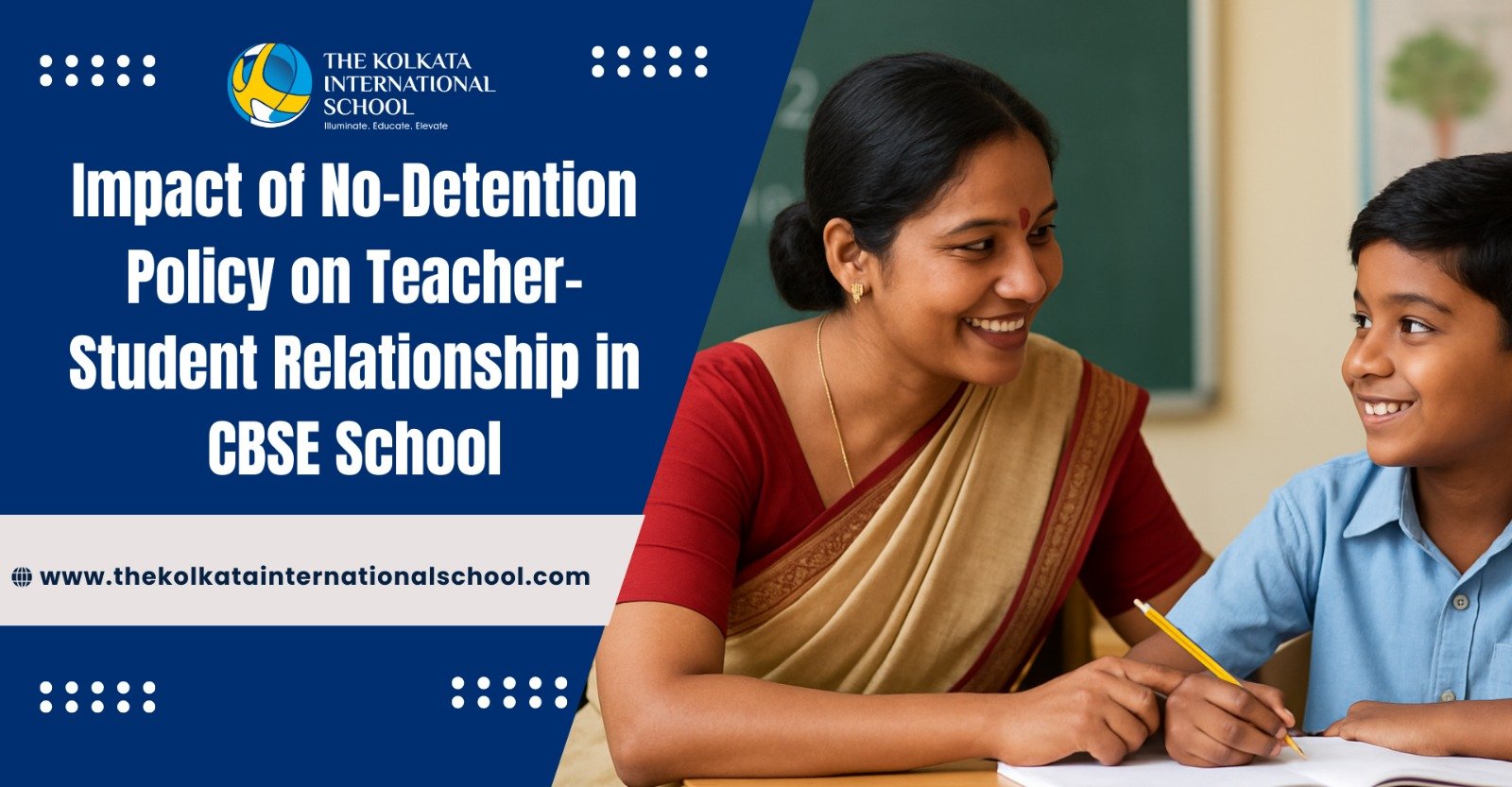
In every school, the teacher student relationship should be more than friends. Teachers are the ones who not only gives students the bookish knowledge, but also teaches them valuable skills of life. They teach discipline, make them responsible citizens of the society and all of the above – a good human being. After parents or guardians, teachers are the ones whose role is main in children’s life.
What to say about the Kolkata International School? Our school is considered as the best CBSE school in Howrah, soon going to established in Liluah. In the context of the formal chalkboard and chair classroom experience, we tend to forget education is more than just transmission of knowledge. Education is used to shape young minds and increase talent of every single student.
Do you know what is no detention policy? Have you ever heard this term? If not, then through this blog, you will get to know about the no detention policy and certain impact of this policy on teacher-student relationship.
What is No detention policy?
The No detention policy was introduced under the right to education act. This policy ensured that students up to class 8 would not be failed, respective of their academic performance. The objective of this policy is to encourage holistic development, reduce stress among children.
Let us explore how the no detention policy has influenced classroom interactions, learning approaches, and emotional connection between teachers and students.
Building a stress-free learning environment
One of the most notable impacts of no detention policy is building a stress-free environment. The teachers of our top school in Howrah tries to solve children’s problems and doubts by giving them personalised attention. Instead of solely focusing on grades, our school teachers emphasise skill-building, creativity and concept clarity.
Encouraging individual attention
The teachers of our best CBSE school in Howrah gives individualised attention to every student. They understand their learning styles. Like other schools, The Kolkata International School have adopted continuous and comprehensive methods to monitor progress. Teachers, instead of labelling students as "failures," now put effort into identifying strengths and weaknesses. This personalized approach nurtures empathy and patience, which deepens the relationship between teacher and student.
Challenges in discipline and motivation
There are some challenges which emerged with no detention policy. At this time, students feel less connected to their studies. This sometimes puts teachers in a critical condition. Teachers may feel their efforts are underutilized, while students may misinterpret leniency as an excuse to neglect studies. Thus, the balance between freedom and responsibility becomes critical.
Shifting teacher roles from instructors to facilitators
The no detention policy has redefined the role of teachers of our school. Instead of being examiners, who judge performance through marks, teachers now act as facilitators of learning. Our school teachers use innovative teaching methodologies for students.
Strengthening emotional support
Through the no detention policy, teachers act as a mentor or guide for their students. The school teachers try to give emotional support to their students. Students who are weak enough, receive the full support of their teachers. By eliminating the stigma of failure, classrooms have become more inclusive. Teachers often act as motivators, instilling confidence in students and making them feel valued, regardless of academic rank.
Greater parental involvement
This is also the impact of no detention policy, with no formal failures until class 8, some parents rely heavily on teachers to track their child’s progress. This further has increased collaboration and communication between parents and teachers.
Moving towards a balanced approach
Recognizing both the benefits and limitations of the no-detention policy, CBSE has been gradually shifting towards a balanced model. While the stress-free environment remains important, periodic assessments and remedial teaching are being reintroduced to maintain accountability.
For teachers, this means adopting a dual role: being compassionate guides while also ensuring students meet academic standards. Striking this balance helps maintain both discipline and warmth in teacher-student relationships.
Conclusion
Hope, you like reading this blog and found it informative. Teachers have evolved from being strict evaluators to empathetic mentors. Admission open in CBSE school Howrah for sessions 2025-2026. Visit our school to gather more information.
 E-Brochure
E-Brochure